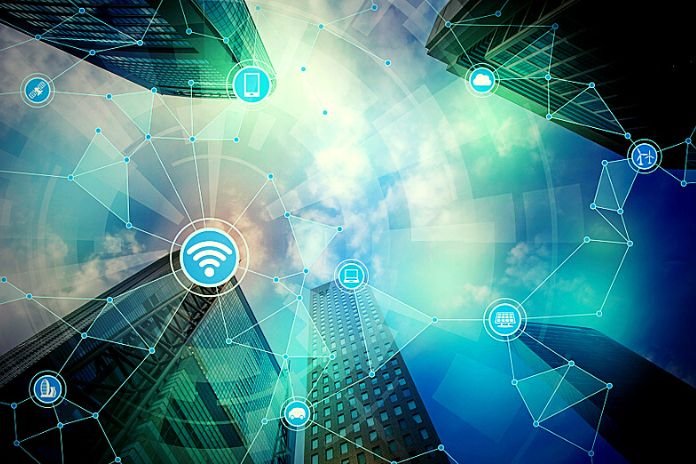Understand The Impact Of The IoT On Businesses
IoT on Businesses: The fourth industrial revolution is coming! If in the past, steam machines and the production line reinvented the way products are manufactured, in this new stage, the great promise is that the Internet of Things (IoT) will accelerate productivity.
Have you heard about this concept? Do you know how it intends to impact the functioning of companies? Do you want to be prepared for this new scenario in the business world? Then follow this text!
What Is The Internet Of Things?
For now, it is a concept under development that aims to revolutionize people’s routines and the production of consumer goods, and how many services will be offered.
Also known by the acronym IoT (Internet of Things), the Internet of Things consists of the ability of connected objects to interact with each other, environments, systems, and people.
In our daily lives, we already have some examples: faucets and doors that open automatically, according to the signaling of presence sensors. It can also trigger devices that detect light, temperature, movements, or app commands to start their activities.
However, these possibilities are still limited in the face of everything that can be done with the IoT. The great expectation is that it will revolutionize production. Through cyber-physical systems, it would be possible to promote the automation of processes due to the interaction between environments, machines, vehicles, and products.
How Can Companies Prepare For The Impact Of IoT?
As we can see, the IoT will take the use of technology to a new level. It will not simply be commanded by people but will acquire an ability to manage itself through this interaction.
Although all this transformation is expected to manage high productivity and excellence, we cannot fail to observe that companies will need to adapt to these changes.
It will be necessary to review business models, restructure work relationships and provide all the care required to ensure the safety of processes.
Want to know what companies need to do to assimilate these transformations productively? Check it out below:
Ensuring Information Security
Despite the many facilities that the IoT promises to bring to the operation of companies, it involves many concerns related to the security of the information in the process.
The expectation is that the machines, for example, are previously programmed to recognize and execute processes directed by integrated systems. Therefore, in addition to the current concern with data protection, it is necessary to ensure that the information shared by the IoT is secure.
Companies need to ensure that only duly authorized people have access and can modify or program this operation. This is essential to ensure the correctness of processes and prevent serious accidents that can occur if activities are not carried out with complete stability and control.
Among the concerns, we can highlight the need to protect against DDoS attacks. The machines must be guarded appropriately so that, in an eventual threat, they are not prevented from performing their functions.
Work On Company Culture
More and more machines can collect, organize and interpret large amounts of information. In many companies, Big Data is already a reality that helps to predict scenarios, optimize processes and guide decisions.
However, the company culture needs to change for all these possibilities to be fully exploited. There is no point in having all these resources when managers or employees remain attached to the current modus operandi and do not make analysis an essential part of their routines and decisions.
After all, to what extent is your team willing to abandon preconceived ideas based on facts and the analysis of all the information collected and crossed? This is an important question that can differentiate companies preparing to compete in the market from those that will become obsolete.
Invest In Technology
Unlike people, applications connected through the IoT need to receive real-time information to respond quickly to established commands.
As you can imagine, all this requires the traffic of a high volume of data. They are generated in endpoints, and they are processed in intermediate stages before reaching the Data Center. Therefore, increasing the capacity to process data within the organization is necessary.
The company needs to have a structure that allows all this traffic in an agile and efficient way. If DNS caches, for example, are not enough to eliminate all queries, the data may not arrive in time. If this happens, there will be failures in terms of real-time expectations, compromising the process.
It is also necessary to think that the company must invest in creating and using new data center management tools. They are needed to handle new protocols designed for IoT devices.
Making Work Relationships More Flexible
Among the most important cultural changes the IoT provides is the flexibility of working relationships. With so many mobile devices, companies can create endless possibilities for their employees to work remotely.
Except in functions where the employee’s presence is essential, adopting models such as the home office can lead to lower costs and increased productivity—the worker gains in quality of life and the employer in profitability.
The company can rely on the IoT to facilitate registration and controls for remote and mandatory cases. Employees will be able to connect to mobile and intelligent technologies to notify (or power) their presence, absence, and other functionality that can save time and streamline processes.
Also Read: How Do You Apply The Internet Of Things To Companies?
Share this content:











Post Comment